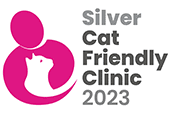This is part 4 of our The Vet Says series on fly strike in rabbits – you can read part 1 here, part 2 here, and part 3 here. There are generally two types of commercial rabbit food; pelleted and mixed, muesli type food. The pelleted foods are far superior to the mixed foods. I always advise owners feed pelleted foods rather than mixed foods. Pelleted foods are generally of higher quality and provide more balanced nutrients especially fibre. Most importantly, they do not allow the rabbit to selectively eat the parts of the mixed food that they like. When presented with mixed food, rabbits will pick out the high sugar, low fibre components of the diet – leaving the healthier high fibre parts in the bowl. Often, owners will through these bits way and replace with a whole new bowl of food. Unsurprisingly, the rabbit then picks out the sugary parts out again and the cycle repeats itself day after day. This results in a rabbit with a very poorly balanced diet leading to dental disease, obesity, digestive problems etc. The advantage of mixed diets is that are cheap, tasty and easily available. Therefore, wherever possible feed a high quality pelleted food. If this is not possible, feed very small amounts of the mixed foods and always ensure the bowl is completely empty before putting more food in. Whichever, commercial food you use, hay and vegetables should constitute most of your rabbit’s diet. A tablespoon of commercial food once a day is adequate for rabbits under 3.5kg. For larger rabbits feed this amount twice a day. Fruit is high in sugar and not routinely eaten by rabbits in the wild. Small amounts of fruit very occasionally is ok as a treat but do not overdo it. Treats should be kept to a minimum. Try and avoid the really sugary treats (which rabbits love!) and the ones made with honey. High fibre treats are best. Finally, rabbits are not designed to eat cereals so bread, cakes and biscuits are off the menu!
Please click here to view the latest information on how to access our services.





